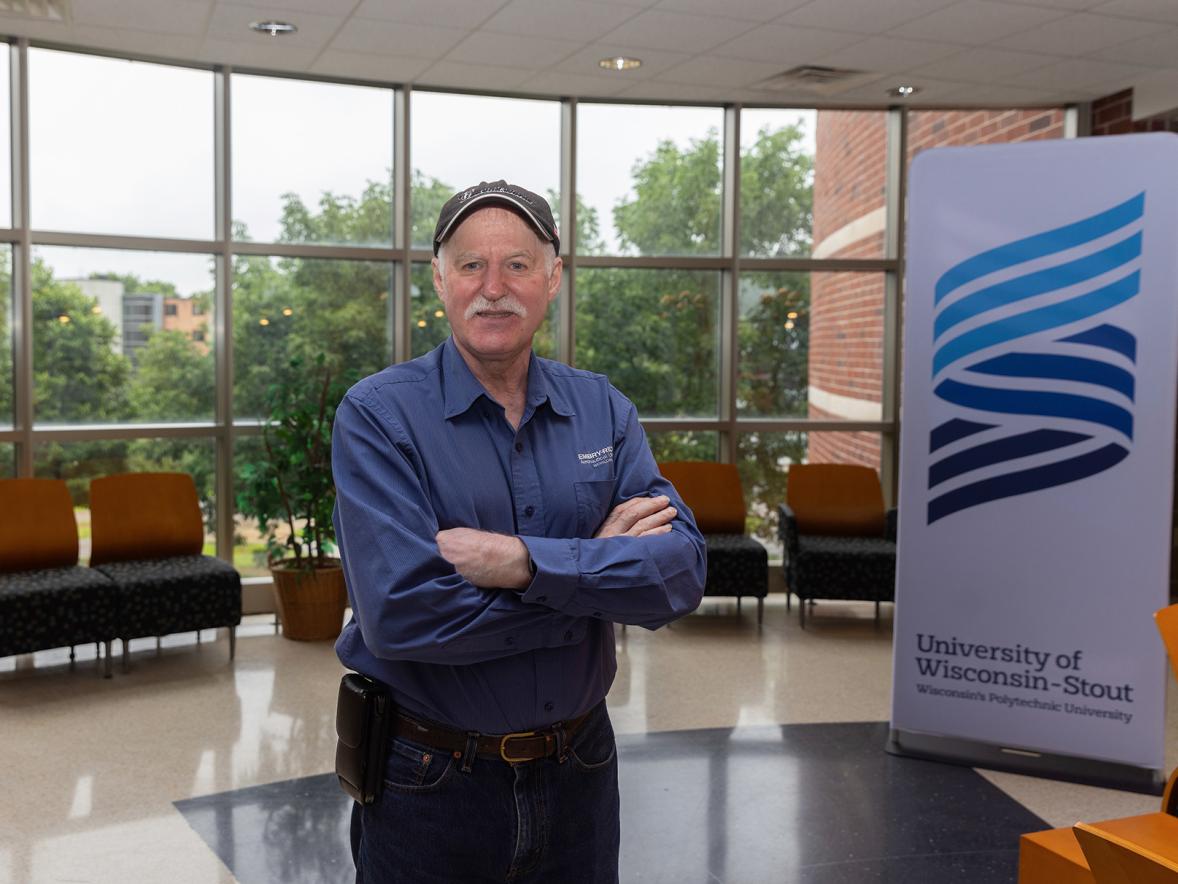About two months after graduating in 2020 from University of Wisconsin-Stout — as the impact of the pandemic shut down businesses across the country — Emma Sisk had a full-time job.
The Plymouth, Minn., native not only found work within her food science and technology major, but she was hired by a company at the top of her list: General Mills.
Sisk began work in July 2020 as an ingredient specification specialist for the multinational food conglomerate based in Golden Valley, Minn. General Mills has dozens of popular consumer brands such as Cheerios, Gold Medal Flour, Yoplait, Betty Crocker, Pillsbury, Totino’s and Haagen-Dazs.

“It was always my dream to work at General Mills, so it is so exciting to be working there right out of college. I am so grateful for this opportunity, and I hope to stay with the company as I grow my career,” Sisk said.
Sisk is part of UW-Stout’s 97.8% — the percentage of the nearly 2,000 graduates from August 2019, December 2019 and May 2020 who found full-time jobs or continued their education soon after graduating.
A new annual employment report by the university’s Career Services found that, despite the COVID-19 pandemic, UW-Stout graduates remained in demand. The employment rate was down only slightly from 98.8% the previous year.
The U.S. unemployment rate hit a record 14.7% in April 2020 and still was 6.7% at the end of the year.
About two-thirds of the 2019-20 graduates are from May 2020, when the pandemic’s full impact was being felt.

“It is strong evidence that our graduates, despite the pandemic, entered the workplace possessing a high level of career-readiness skills, earned through applied learning experiences, and continue to be an essential talent pool for many business and employer partners,” said Bryan Barts, director of Career Services, which produces the report.
Of UW-Stout’s 46 undergraduate programs, 30 had graduate employment rates of 100%.
Graduates were hired in 35 states. Nearly half, 48%, are working in Wisconsin while 81% found work either in Wisconsin, Minnesota or Illinois.
Numbers that rose in this year’s report included:
- The average starting salary of graduates, from $48,000 to $49,000. Five years ago it was $42,500.
- Graduates who found work in their career field, 86%, which was up from 83% the year before.
The 97.8% figure includes 6.1% of graduates who are continuing their education or working in a service field.
Hired by Fortune 500 companies
Sisk is one of many 2019-20 UW-Stout graduates hired by a major corporation.
Graduates landed jobs at 50 companies listed in the Fortune 500, including Activision, Boston Scientific, Caterpillar, 3M, Hewlett-Packard, Hormel, Hilton Worldwide and IBM.
Sisk creates and manages specifications for dairy ingredients used in General Mills products. The specifications outline ingredient requirements, such as nutrition and various properties.

“I really enjoy my job. I like managing projects and working with cross-functional teams to develop the specifications. This has also been a great opportunity to learn about the industry and business process through working with people from all across the company including R&D, sourcing, regulatory and quality,” she said.
Sisk felt well-prepared to start her job because of her food science education, her hands-on experiences at UW-Stout and an internship.
“It’s important to understand the technical information that I am writing on specification to ensure it is accurate. In addition to the food science knowledge from my degree, I am using other skills developed through my education such as time management, communication and critical thinking,” she said.
She also benefited from seven labs and three test kitchens on campus. The program is accredited by the Institute of Food Technologists.
“The hands-on nature of lab classes was a really beneficial part of my Stout experience. I learned so much from conducting my own experiments and developed valuable lab skills. The professors at Stout also stood out. I had so many professors who were passionate about their field and dedicated to their students, which made me excited to learn and helped me excel in my courses,” Sisk said.
A requirement of the food science and technology program is an internship or co-op. Sisk’s happened in 2019 at General Mills in research and development.
“I think that helped me get my current position. It was really great to have that hands-on experience to learn about the industry and prepare me for my career,” said Sisk, who received the full-time job offer the day after interviewing.

Co-op participation remained strong
Although the number of students taking part in internships and co-ops in 2019-20 declined because of on-site job restrictions during the pandemic, more than 700 still participated, according to the employment report.
The Cooperative Education and Internship Program continues to connect students, especially juniors and seniors, to business and industry as they prepare to start their careers.
“Many of our successes are driven by our Cooperative Education and Internship Program, as well as our committed service to employers, often going above and beyond just posting a position in our CareerLink system,” Barts said.
“We have implemented several programs to support students’ connection to their field, including our Employer in Residence program, virtual job shadow program and our successful fall and spring recruitment and networking events,” Barts said.
“Our collaboration with industry and hands-on curriculum help prepare students to make immediate impacts,” he added.
The knowledge rate for the employment report, which combines survey responses and other available information on graduates, was 77%.
###






